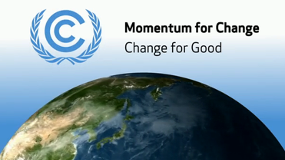WCPFC needs to move towards precautionary science-based harvest strategies
- Details
- Category: News
- Published: Monday, 30 November -0001 00:00
- Written by Bill Jaynes
- Hits: 248
Leah Wiser
Pew Charitable Trusts
The Western and Central Pacific Fisheries Commission ended its annual meeting with management in place for tropical tuna fisheries, but little progress on a much-needed move towards precautionary, science-based harvest strategies.
While rolling over its existing rules for bigeye, skipjack, and yellowfin tunas averts a management crisis like the one that transpired at the Inter-American Tropical Tuna Commission’s annual meeting more than a week ago, these annual negotiations demonstrate that a modernized approach is urgently needed.
Glen Holmes, an officer for Pew’s international fisheries work said the following:
“The Western and Central Pacific Fisheries Commission took a good first step in extending its current management of tropical tunas through 2021. This will provide basic safeguards for fisheries worth more than US$19 billion.
“This decision adds to pressure on the Inter-American Tropical Tuna Commission to adopt a management measure for eastern Pacific tropical tunas at its special session next week. Just over a week ago, IATTC failed to agree to a critical management measure, leaving these fisheries in a huge area of ocean completely unregulated. Although WCPFC’s action is important, the entire Pacific deserves—and needs—comprehensive rules for tuna fishing.
“And while WCPFC should be commended for not reaching a stalemate, the time-consuming nature of annual negotiations and the massive costs if consensus is not reached, highlight the urgent need for a predictable, stable approach to management. If a harvest strategy had already been in place, quota-setting for tropical tunas would have been automated, leaving managers time to discuss pressing improvements that could safeguard the stocks and reduce risks to seafood buyers, such as improving oversight of transshipment activity, finalizing rules for electronic monitoring onboard vessels, and combating illegal fishing. Disappointingly, the Commission had little time to discuss these issues, and could not even agree to a hold a meeting next year for scientists and managers to come together to discuss how to progress harvest strategies.
“It is time for WCPFC to step up and modernize its approach. Governments must fully commit to harvest strategies instead of continually delaying the process. It is the only way to break the cycle of inefficient and ineffective quota negotiations and ensure the future health and sustainability of western and central Pacific fisheries.”






